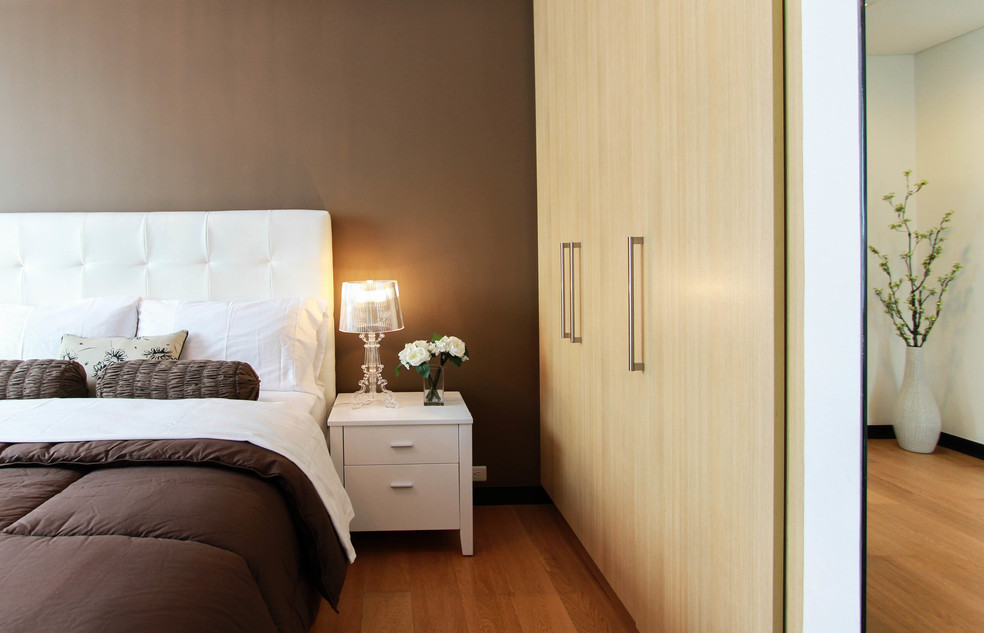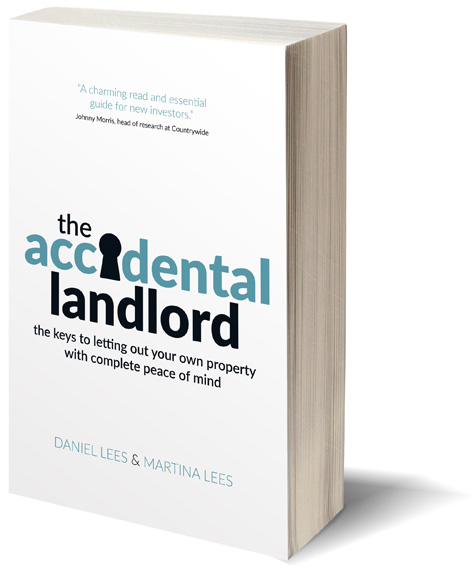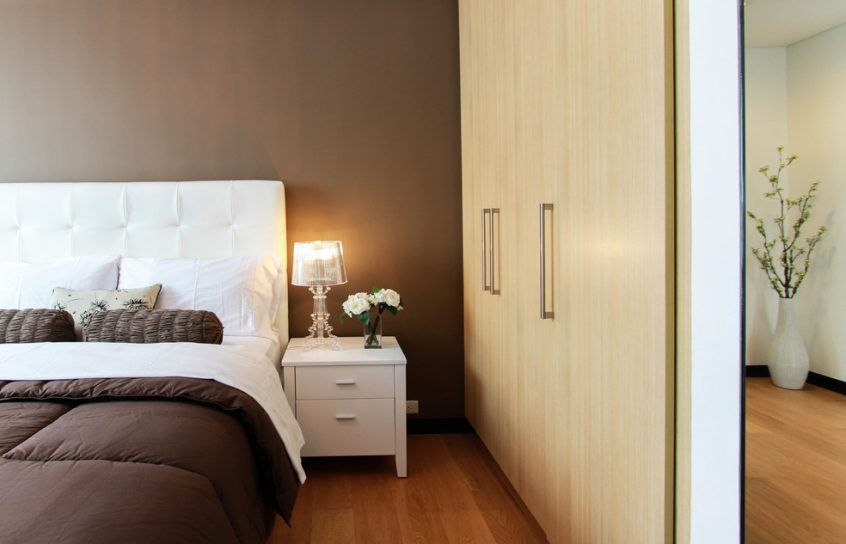
If you pick the right lodger, it’s a great way to earn extra income and it’s good company.
Looking for tax-free rental income? Follow these rules and it’s elementary
Forget Rigsby. The typical owner who lets out their spare room is no longer a miserly live-in landlord like the one from the 1970s sitcom Rising Damp — fiftysomething and long since separated, spying on his bedsit tenants.
Nowadays, they’re likely to be younger and struggling to afford the home they recently bought. Almost a quarter of live-in landlords who advertise on easyroommate.com, for example, are first-time buyers or recent upsizers, and 61% of those with spareroom.co.uk listings are under 44.
For the past seven years, charging lodgers about £150 a week has helped the novelist Alice Peterson, 43, to pay the mortgage on her two-bedroom terraced home in Hammersmith, west London, and given her the idea for her bestseller Monday to Friday Man. Tom, a cousin who is training to be an opera singer, is currently staying.
“If you pick the right lodger, it’s a great way to earn extra income and it’s good company,” she says. “I get to hear Tom singing opera in the shower. How lovely is that?”
Tax breaks are fuelling the surge in lodgers. Since last April, when the amount you can earn tax-free under the government’s rent-a-room scheme almost doubled to £7,500 a year, live-in landlord ads on Spareroom have risen by 25% to 120,000 — twice as fast as the year before. If you’d like to cash in, here are 10 tips.
1. Advertise yourself
Market your extra bed free to long-term lodgers via Spareroom or Easyroommate (though it costs from £10.99 to contact tenants). Or target weekly commuters on mondaytofriday.com and fivenights.com (both from £29.95). For shorter stays, your best bet is airbnb.co.uk (free to advertise, then a 3% fee on each booking).
I won’t insult your intelligence by telling you to make the bed before getting out your digital SLR camera, or advising you to open the curtains and switch on the lights for that crisp wide-angle shot bathed in daylight. Of course you wouldn’t dream of using a blurry iPhone snap with your knickers drying in the background. But you may not realise the importance of giving a sense of who you are in your advert.
Failing to do so, says Matt Hutchinson, director of Spareroom, is the biggest mistake people make when marketing a room. “Anyone coming in will want to know what you’re like to live with. The person is just as important [as the room], if not more so.” Don’t, however, post a selfie.
2. Meet in person
“First, define your ideal flatmate,” says Jack Martin, general manager at Easyroommate. Show several candidates around and ask them the right questions. Are they an early bird or a night owl? Do they hate mess or are they happy to leave the dishes in the sink? Do they get out much, or would they rather binge-watch Broadchurch? What time do they leave for work?
Peterson asks herself: “Would I be able to share a bathroom with this person? It’s important you feel comfortable sharing your personal space with them.” She also asks potential lodgers if they snore: one was so loud, they had to part ways.
3. Agree house rules
Invite candidates whose lifestyles seem compatible with yours out for coffee. To avoid tension, agree expectations before picking your lodger. Hutchinson stresses the “boyfriend rule”: allow your lodger’s partner to stay over only as many nights a week as your lodger stays at theirs.
“It doesn’t have to be a long list, but sit down together and discuss things,” he says. Decide what is included: bills, laundry, parking, cleaning and whether smoking or pets are allowed.
4. Vet carefully
“Don’t just trust your instinct,” warns Tessa Shepperson, a tenancy lawyer who set up lodgerlandlord.co.uk. “Conmen appear respectable — it’s their job.” Online services such as Experian (£30) will check their credit report, employer and references, and what rent they can afford. You can also ask your tenant to apply to Disclosure Scotland (£25) for proof they have no unspent convictions (the search covers the whole of the UK). Check your tenant’s LinkedIn profile and, if using Airbnb, accept only guests with verified identities and social media profiles.
“All landlords — even if they are only letting a room in their own home — must carry out a right-to-rent check.” Shepperson says. Those who do not face fines of up to £500 (gov.uk/check-tenant-right-to-rent-documents). Short lets under 90 days are exempt.
5. Have a contract
A thorough written agreement will protect you if things go wrong, Shepperson says. It should state that you have shared use of the bathroom or kitchen, and that you (or a paid-for cleaner) have access to clean the lodger’s bedroom. If they have exclusive use of any rooms, you’ll need to go to court to get them out. Yourlawstore.co.uk has a lodger agreement and reference forms for £25.
6. Collect the rent on the dot
Ask for a month’s rent in advance, plus a deposit — usually another month’s rent. You don’t have to protect the deposit in an official scheme. Get your lodger to set up a standing order so you won’t have to remind them to pay. Or set up a direct debit via gocardless.com: it costs £2 per payment and alerts you if it is cancelled. Insist that Airbnb payments go via its website.
7. Tick the safety boxes
By law, an engineer on the Gas Safe Register must test your gas supply and appliances every year (£65-£125; gassaferegister.co.uk). Upholstered furniture and beds must have fire-safety labels (firesafe.org.uk); and, though it’s not a requirement, each floor should have a smoke alarm. Overall, your property has to be safe from hazards and in good repair.
8. Beware the HMO trap
“If you rent rooms to two or more lodgers, it can make your property a House in Multiple Occupation,” Shepperson says. That means a raft of health-and-safety red tape, and you may need an HMO licence — check with your council. The rules for London boroughs can de found at londonpropertylicensing.co.uk.
9. Get consent
Tell your home insurer in writing or your buildings and contents insurance might be invalid. Advise your lodger to get contents cover for their belongings, as your policy will probably not include this. And inform your mortgage lender: it is unlikely to object.
If yours is a leasehold property, check that your freeholder allows subletting: many blocks won’t tolerate a stream of Airbnb strangers bumping wheelie cases up the stairs at midnight.
10. Pay the right tax
Taking in a lodger means you can no longer get the 25% single-person discount on your council tax. And ifyou use the rent-a-room allowance, you can’t deduct expenses. If you have high costs, such as cleaning and bills, you may be better off subtracting these from your rental income instead of claiming the allowance. You only have to file a tax return if your spare room earns more than £7,500 a year.
Martina Lees is the author of The Accidental Landlord (accidentallandlord.info)
This article was published in The Sunday Times, Home, on 30 April 2017
The Accidental Landlord
In the post-Brexit world of jittery prices, tax changes and 140-plus landlord laws, this Amazon bestseller tells you how to let out your own property with complete peace of mind.
Get free help


